
all
Learning
My Culture Is Not Your Or Your Kids’ Halloween Costume
Photo © Maria Sbytova/123RF
Oct 24, 2019
My formative years were in the '80s. I think it’s a fair statement to say that things were different then.
Representations of Indigenous people — in comics, movies, television, books, the news — were problematic. They perpetuated harmful stereotypes which served to dehumanize Indigenous people and led to racist attitudes and behaviours. I wasn’t immune to the impact. For a Cree youth, it shaped my self-perception. I felt “less than” because these representations made me feel devalued. But things are different now, right?
Halloween is fast approaching and with it, ghouls, goblins, ghosts… and Pocahontas.
Not so fast.
I was at a hockey game recently. After the game, I found myself walking behind a young man wearing a Cleveland Indians cap. The hat was turned backwards, and Chief Wahoo was staring me right in the face. For those who aren’t aware, Chief Wahoo is Cleveland’s red-faced, toothy, feathered, black-haired mascot. Recently, Cleveland stopped putting Chief Wahoo onto the field with its players. However, it continues to be sold. And for every team that has stopped using a racist mascot (which are almost exclusively Indigenous in nature) or changed its racist name, there are far more that have not (see the NFL’s Washington football team, a name I refuse to write). But this overt racism isn’t exclusive to sports.
Halloween is fast approaching and with it, ghouls, goblins, ghosts… and Pocahontas.
Pocahontas is a Disney character. What’s the big deal?
First off: this article is not intended as a guilt trip. Guilt doesn’t do anybody any good, and I don’t think people choose costumes, for themselves or their children, to be racist or offensive. The thing is, that doesn’t make it not racist or offensive. Even those of us who aren't racist can still perpetuate racism by the choices we make.
Interested in this topic? Read this mom's piece on why your kid's costume matters.
So, to answer “What’s the big deal?” — I can confirm that it is, in fact, a big deal. Dressing up as another cultural group diminishes that cultural group to a caricature. And for youth, Indigenous and non-Indigenous, that can plant a seed that grows into something far worse down the road.
I'd like to plant a different seed.
What I'm talking about is appropriation. Like reconciliation, it’s a bit of a buzzword, so let me break it down into something more manageable. Appropriation is the act of borrowing elements from one culture and removing all context and meaning, with the intent of using those elements for your own purpose or profit. For example, dressing a non-Indigenous child as a “native chieftain” for Halloween, complete with a headdress, would be eliminating the context and meaning of the headdress, let alone a chief. This article isn’t long enough to discuss the significance of a headdress, but suffice to say, it’s not a prop. It means something.
And Indigenous people are not the only victims of Halloween appropriation. October 31 is not so great for the black community or the trans community, to name two.
At its heart, it's about respect. And while the conversation we’re having now might be a bit too difficult, a bit too complicated, to have with a child, I would argue that it’s never too early to talk about respect. I’ve visited enough kids across Canada to know that they get it. But if they're bought a costume, they’re going to wear the costume. And if they wear the costume, they may start forming damaging perceptions. Because while kids get respect and empathy, they’re also impressionable.
“So if I dress up as a pirate, aren’t I being offensive to pirates? Where does this political correctness end? It’s like I’m not allowed to do or say anything anymore!”
I hear and see this pretty often. I guess it’s not an awful question, if it’s asked genuinely. After all, Pocahontas is a character in a Disney movie, right? Well, no, she’s not. And dressing up as her is not the same as dressing up as, say, Jack Sparrow. To answer the question, I would suggest that another question is appropriate. Is the group being referenced — let's stick with pirates — a group that has been subjected to a history of oppression and discrimination? Because Indigenous people have.
And Indigenous people are not the only victims of Halloween appropriation. October 31 is not so great for the black community or the trans community, to name two. They, and others, have encountered historical oppression as well, and should also not have to see themselves as a costume. They should not have to feel dehumanized, as though they are on the same level as a unicorn or a ghost or a zombie.
Read more from David Robertson: I Think All Canadians Have A Responsibility To Talk To Their Kids About MMIWG — Here’s How
They, we, are human beings.
That’s the crux of this argument, I think.
Let’s look at reconciliation. What is it, really? My father, a recognized elder, says that reconciliation is making the effort to see each other as human beings, not stereotypes. In the context of Halloween and appropriative costumes, that means a few things.
I’m not infallible. Far from it. ... I was looking through old pictures recently and saw a photograph of my oldest daughter when she was a toddler. From what I can tell, she had on an Indigenous costume. Not Pocahontas, but not a whole lot better.
First, it’s difficult to see one another on a human level when one dresses up as the other in a way that perpetuates stereotypes we need to start seeing through. Second, we need to talk with each other and learn about each other. How can I educate my children if I don't educate myself first? For example, all it takes is a Google search to find out why the headdresses I mentioned earlier are so important and should not be relegated to the designation of Halloween costume. The more we do this, the more we prevent marginalized people from existing outside of historically perpetuated stereotypes.
I’m not infallible. Far from it. I’ve made mistakes with my five children. We don’t do Halloween anymore for our own reasons, but we used to when there were two kids and life was less busy. I was looking through old pictures recently and saw a photograph of my oldest daughter when she was a toddler. From what I can tell, she had on an Indigenous costume. Not Pocahontas, but not a whole lot better.
Back then, I was just beginning to educate myself about Indigenous people, about my father’s life, about what it meant to be Indigenous for me. I grew up disconnected from my Indigeneity, and this is a journey I’m still on.
I’ve had these conversations with my kids, I’ve had these conversations with parents. I’ve gone through the process of learning so that I, and hopefully others, can make better decisions. So that my kids grow up differently than I did because I’ve planted a different kind of seed in them.
Because as much as things have changed, a lot has remained the same. And all this to say: this Halloween, maybe pick Elsa (or the pirate) over Pocahontas.
Most Popular
-
 Ages:
Ages:
allStories
Childhood Is Too Short So Just Let The Teens Trick-Or-Treat
-
 Ages:
Ages:
allFamily Health
Why Being A Halloween Candy Micromanager Can Create Long-Term Problems For Kids
-
 Ages:
Ages:
allStories
My Daughter Wore a 1960s-Inspired ‘Indian’ Costume — And Here’s How I Took Care of That
-
 Ages:
Ages:
allStories
I’m Not Your Typical Mom — Here Are 5 Assumptions You Have All Wrong
-
 Ages:
Ages:
allStories
Here’s Why We’re Ditching Trick-or-Treating This Year

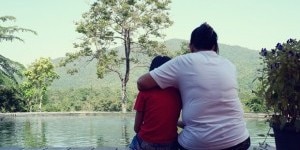











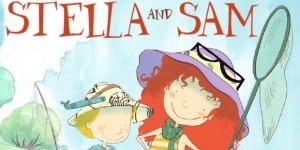




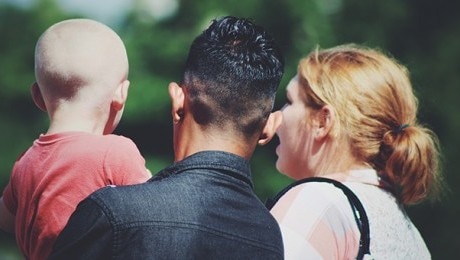



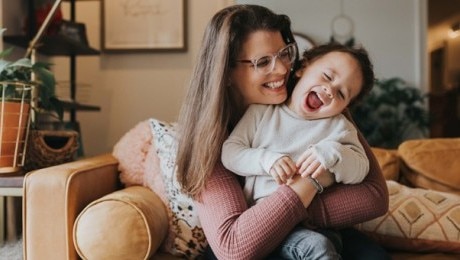






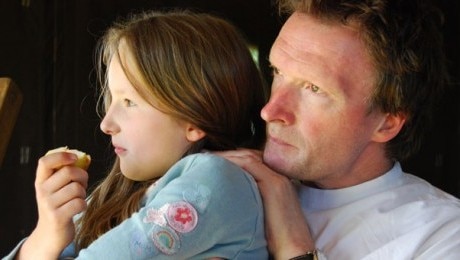
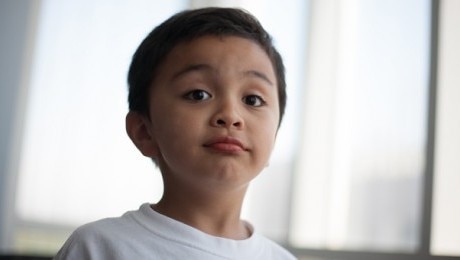















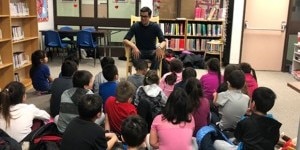

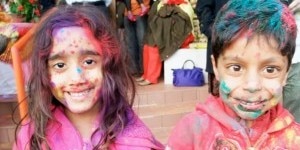


Add New Comment
To encourage thoughtful and respectful conversations, first and last names will appear with each submission to CBC/Radio-Canada's online communities (except in children and youth-oriented communities). Pseudonyms will no longer be permitted.
By submitting a comment, you accept that CBC has the right to reproduce and publish that comment in whole or in part, in any manner CBC chooses. Please note that CBC does not endorse the opinions expressed in comments. Comments on this story are moderated according to our Submission Guidelines. Comments are welcome while open. We reserve the right to close comments at any time.
Submission Policy
Note: The CBC does not necessarily endorse any of the views posted. By submitting your comments, you acknowledge that CBC has the right to reproduce, broadcast and publicize those comments or any part thereof in any manner whatsoever. Please note that comments are moderated and published according to our submission guidelines.